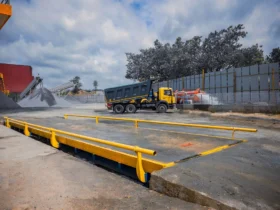Renting a trailer can be an efficient and cost-effective solution for transporting materials, equipment, or cargo, but first-time renters often make costly mistakes. Whether it’s selecting the wrong type of trailer, failing to account for weight limits, or neglecting safety checks, these errors can result in unexpected expenses, delays, or damage to cargo. Understanding how to avoid these common mistakes ensures a smooth rental experience and maximizes the benefits of trailer rentals.
The Most Common Mistakes in Trailer Rentals
Renting a trailer may seem straightforward, but several pitfalls can lead to unnecessary complications. Below are some of the most frequent mistakes and how to prevent them.
1. Choosing the Wrong Trailer for the Job
One of the biggest mistakes renters make is selecting a trailer that doesn’t match their needs. Each trailer type is designed for specific hauling purposes, and choosing the wrong one can lead to inefficiencies or safety risks.
How to Avoid This Mistake:
- Assess Cargo Requirements – Determine whether you need an enclosed trailer for protection, a dump trailer for easy unloading, or a flatbed trailer for oversized loads.
- Consider Load Weight and Size – Ensure the trailer has the necessary weight capacity and dimensions to accommodate your cargo.
- Think About Loading and Unloading – Choose a trailer that allows easy access based on the materials being transported.
2. Overlooking Weight Limits and Towing Capacity
Every trailer has a weight limit, and exceeding it can cause mechanical failures, reduce fuel efficiency, and increase safety risks.
How to Avoid This Mistake:
- Check the Gross Vehicle Weight Rating (GVWR) – Always verify the trailer’s weight capacity before loading cargo.
- Confirm Towing Vehicle’s Capability – Make sure your vehicle can handle the combined weight of the trailer and cargo.
- Distribute Weight Evenly – Avoid overloading one side of the trailer, as it can cause balance issues and instability while driving.
3. Neglecting Pre-Rental Inspections
Skipping a pre-rental inspection can result in unexpected issues that affect safety and performance. Damaged tires, faulty brakes, or missing components can turn a simple rental into a frustrating experience.
How to Avoid This Mistake:
- Inspect the Trailer Before Renting – Check tires, lights, brakes, and hitch connections.
- Look for Visible Damage – Report any dents, rust, or missing parts before signing the rental agreement.
- Test Brake and Signal Lights – Ensuring all electrical components function properly improves road safety.
4. Not Securing the Load Properly
Loose cargo can shift during transport, leading to potential damage or loss. Inadequately secured loads also increase accident risks, especially when traveling at high speeds or making sharp turns.
How to Avoid This Mistake:
- Use High-Quality Tie-Downs – Secure cargo with strong straps, bungee cords, or chains to prevent movement.
- Cover Loose Materials – If transporting gravel, soil, or similar materials, use a tarp to prevent debris from escaping.
- Double-Check Load Stability – Before departure, walk around the trailer and ensure all items are secured and balanced.
5. Ignoring Rental Terms and Fees
Many renters fail to read the fine print in their rental agreements, leading to unexpected charges or disputes.
How to Avoid This Mistake:
- Review the Rental Agreement Carefully – Understand mileage limits, return policies, and additional fees.
- Ask About Late Return Penalties – Some rental companies charge per hour or day if the trailer is not returned on time.
- Clarify Insurance Coverage – Confirm whether damage protection is included or if additional coverage is needed.
6. Not Accounting for Road and Weather Conditions
Weather and road conditions can significantly impact towing safety. Wet roads, strong winds, or uneven terrain can make trailer hauling more challenging.
How to Avoid This Mistake:
- Check the Weather Forecast – If storms or high winds are expected, adjust travel plans accordingly.
- Drive Cautiously on Uneven Roads – Reduce speed and allow extra space for braking when driving on dirt or gravel roads.
- Prepare for Emergency Situations – Carry spare tires, extra straps, and a basic toolkit in case of unexpected issues.
7. Failing to Return the Trailer in Proper Condition
Returning a trailer in poor condition can lead to additional cleaning or repair fees. Many rental companies expect trailers to be returned in the same state they were rented.
How to Avoid This Mistake:
- Clean Out the Trailer Before Returning It – Remove debris, dirt, or any leftover cargo.
- Refuel If Required – If renting a trailer with an auxiliary power source, ensure it’s returned with the agreed fuel level.
- Report Any Issues Immediately – If damage occurs during use, notify the rental provider to avoid surprise charges.
Safety Tips for First-Time Trailer Renters
Safety should always be a priority when renting a trailer. Following these best practices can help ensure a smooth and trouble-free experience.
1. Perform a Final Walkaround Before Driving
Before leaving the rental lot, conduct a final inspection to confirm that everything is secure and operational.
2. Adjust Driving Habits for Towing
- Allow for longer stopping distances.
- Take wider turns to accommodate the trailer’s length.
- Maintain steady speeds and avoid sudden acceleration or braking.
3. Practice Parking and Reversing
If you’re not used to towing, practice backing up and parking in an open space before heading out on the road.
Conclusion
Avoiding common trailer rental mistakes can save time, money, and frustration. By selecting the right trailer, ensuring proper weight distribution, and securing cargo effectively, first-time renters can enjoy a hassle-free experience. Taking safety precautions and understanding rental agreements further enhances the process, making trailer rentals a valuable solution for transporting materials, equipment, or goods.
Big Rentals provides a wide selection of trailer rental options tailored to various hauling needs. Whether transporting heavy equipment or everyday cargo, choosing the right trailer ensures safe, cost-effective, and efficient transport.







Leave a Reply